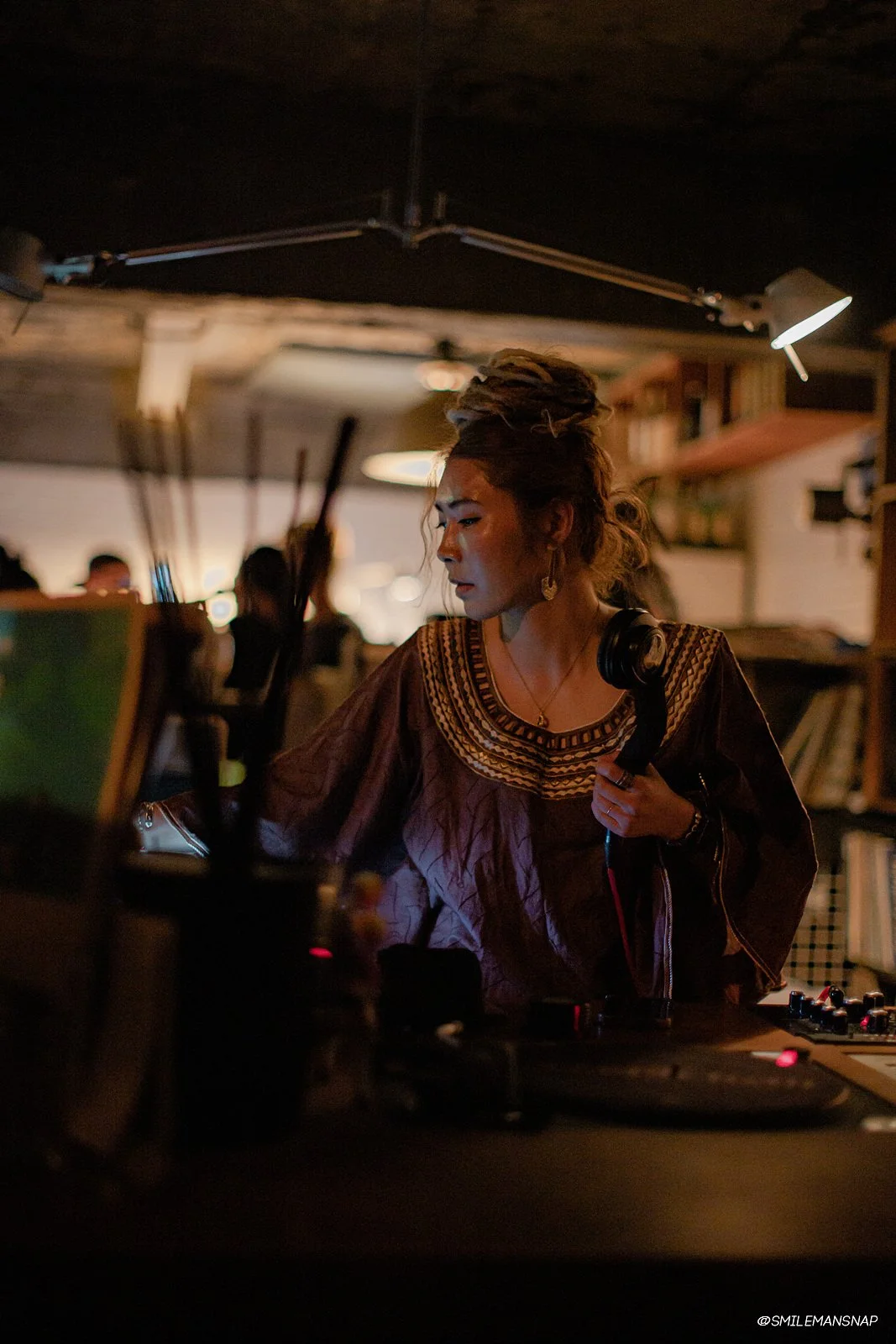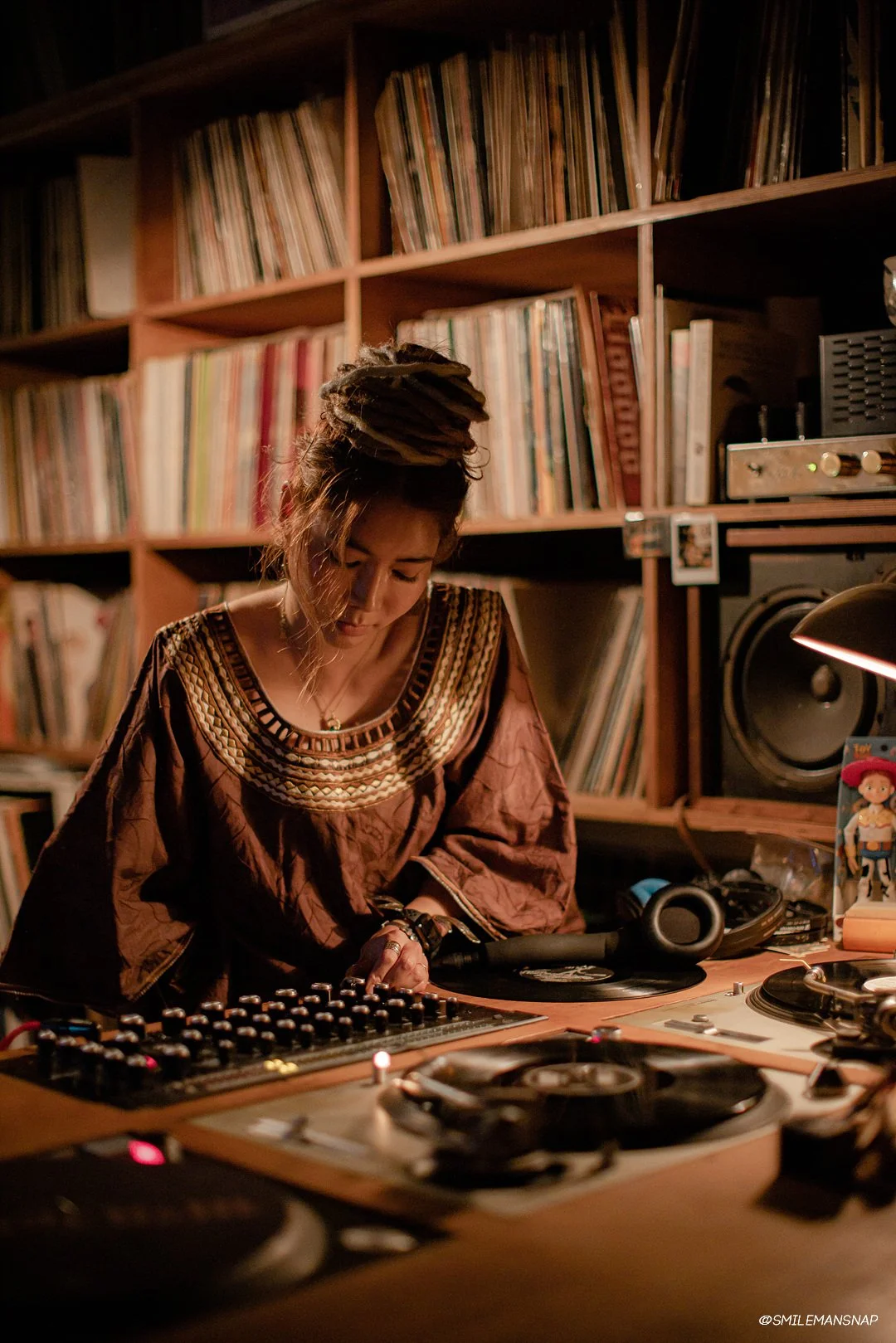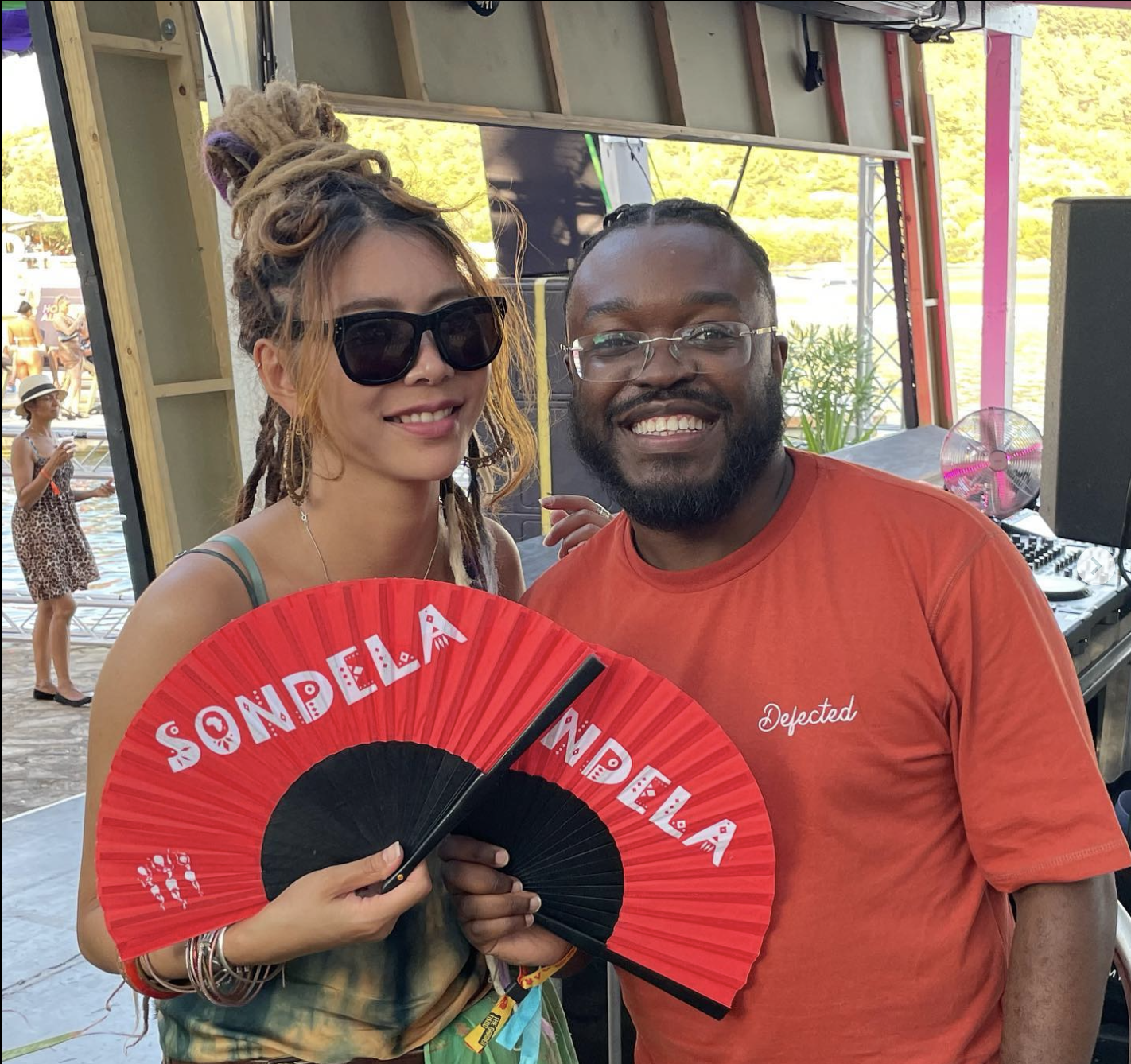Interview & guest mix with the talented South Korean DJ Beijo Bae
Chino Vv catches up with South Korean DJ Beijo Bae whose passion for House Music is truly spiritual and infectious…
Following our trip to Defected Croatia this summer (2022), during the blues of returning to normality, you often reflected on the moments, the musical journeys and the people you met. One constant that was clear to me was that everywhere we found a vibe, we saw Beijo Bae.
Whether she was making moves on the dance floor, networking with DJs and househeads or fully engrossed and studying every aspect of each DJ set, you would see a smile and dreadlocks fully taking in everything at that moment.
We caught up with Beijo Bae, who gave us an insight into her life and experiences in the wonderful world of House Music. She has also given us a dope guest mix, sure to get you off your seat. Enjoy!
Find out more about Beijo Bae, as she caught up with Chino…
1) How did you get into house music, and what was your earliest memory of embracing the afro-deep sound?
I've been a big fan of music from a very young age. Since there was no Internet then, I had no choice but to listen to music through traditional media. I was most attracted to R&B, New Jack Swing, and Hip-hop.
I don't remember exactly how I found it, as it was so long ago, but I was utterly fascinated by the vibe created by 'Real Jam Music' DJ Chiman and Leam, who played deep and soulful house music in the now-defunct Club Tool.
My heart was pounding so much to the house music they played. It was intense, and from that experience, I returned as a househead.
At that time, I listened to tracks from Louie Vega, Jihad Muhammad, Frank Roger, and Mr V before I became immersed in afro house.
It hasn't been long since I've recognised that I like and connect with the Afro-deep style the most. This comes down to the fact there are no DJs in Korea who play this style of house music. However, in reflection, I was already influenced in stages by Boddhi Satva, Osunlade, Timmy Regisford, and Louie Vega when they performed in Seoul.
2) Who was your influence being based in South Korea?
The Real Jam Music crew turned me into a househead.
It's a shame that DJ Chiman has stopped playing, but DJ Leam is still pursuing his path and being such a role model to me. He is the DJ of DJs and can read the dance floor well, and his musical selection touches a string in my heart.
I also respect DJ Jinwook, who has a wide range of music and is still very active playing everywhere!
He's charismatic, and he's like a guardian of the record culture in South Korea, running a really nice record bar called Disco surf (temporarily closed).
3) Tell the Vinyl Vandals audience about the House Music scene in South Korea and why you started to DJ?
The nightlife culture in Korea is good. You can enjoy various styles of house and techno in Seoul. Overall, we've got many good DJs and dancers.
Deep house and Afro house / Afro Tech are very much underground. There was a club venue, much like Djoon in Paris, that played nice deep house, and dancers gathered to express (similar to break dancing), but unfortunately, it is now closed. We do have other nice places and events going on every week.
I've been alone for a long time in my pursuit of Deep and Afro-house music. I've thought about becoming a DJ from time to time, but my daily life was so far from it.
My love for house music became so strong as the years went by. When I finally got a job and could afford to go abroad, I travelled to New York and met my hero Jihad Muhammad, Black coffee, DJ Spinna, Timmy Regisford, Ian Friday, Josh Milan and Dawn Tallman. My experience in New York enhanced my view of the world.
I soon realised House music was not for certain groups, certain ages, certain times or spaces in New York. House music was being enjoyed in various places, day and night, by men and women of all ages. It was life itself. There I realised that this is a culture I have to belong to, and being a DJ was inevitable.
4) We met at the Defected festival in Croatia this summer. Tell us more about your experience in Croatia at Defected and where you have travelled to experience afro-deep sound?
This summer was surreal. I spent three weeks in Tisno, Croatia, where I was able to attend Suncebeat and Defected Croatia. I travel after music, and those two festivals were like a buffet full of delicacies.
The Sondela stage from Defected Croatia was exceptional. Fourteen hours of pure Afro house and Afro Tech!
Each DJ had a unique way of creating a vibe and journey. Djeff instantly changed the vibration on stage, Manoo made the dance floor into his kingdom, Kid Fonque looked like a giant tree as if nothing else could shake him with his style and vibe straight out of South Africa.
Tisno is a beautiful place where you can't ignore nature. I will never forget the night I watched the sunset while swimming in the sea and the shooting stars pouring out afterwards...
At the festivals, you can meet many people from all over the world who welcome you like a family, and they open up new paths for you. It's like a magical spider web. DJ Lord Byron, whom I met at Suncebeat in 2019, watched me grow as a DJ and allowed me to play at the after-club called Vortex. It was a hit, and I was able to connect deeply with the dancers invited to the festival. I am excited to meet them again in South Africa soon.
5) Who are your favourite producers and DJs that elevate your soul and inspire you as a DJ?
There are so many... and the reasons are all different.
Among DJs, Djeff has been the best in recent years. He's got great technique presenting sounds right on time, he is really good at 'cooking' track over track, and most of all, I can really see he's a purist for house music. I wanted to study his set this year but found myself enjoying the moment. That's what a good DJ does to his audience.
Among producers, I admire the style of Mike Steva and Boddhi Satva. Those two are very different, but they both have strong ethnicity at the core. As I listen to various types of ethnical electronic music, including Nicola Cruz and Acid Arab.
They inspire me to make an (afro house) track with Korean ethnic elements someday. In Korea, the label Total Unity, led by Akimbo, is a pioneer in this style. Chari Chari in Japan is also excellent.
All-Time Classic, which made me who I am now, is Louie Vega, Jihad Muhammad, Timmy Regisford, Spen & Karizma, Atjazz, Terry Hunter, Francois K, Doug Gomez, DJ Beloved, to name a few. Labels like Ocha Records, Yoruba Records, and Innervision have all had a considerable impact on me.
These days, I pay a lot of attention to South Africa. They seem to have the best vibe. Caiiro's album this year is a masterpiece, Kid Fonque's Stay True Sound is a trustworthy label. Tracks from Culoe de Song have been echoing deeply in me, and it's good his records are available.
I recently did B2B with Mobi Dixon, and it was a great lesson for me. His skill was mesmeric. Among the sets I watched this year, I like Manoo the most; his style is soooo deeeep…
Beijo Bae, pictured with Sef Kombo of Sondela Recordings - Tisno Croatia August 2022
6) We can see you are passionate about finding unique sounds and buying vinyl (which we love). Where is the best place to buy vinyl in South Korea?
The Korean vinyl market is growing again on the back of retro fever. The number of record shops and record bars increased during COIVD while clubs were going through a difficult time. Unfortunately, my favourite one, Disco surf, is closed, but here are my recommendation:
Mosaic: they used to have an extensive section of house, which is not regular here.
Junction: It specialises in electronic music, house to techno.
Mio Records: the owners bring & import good records from Japan.
Dive Records: this record shop in itself is art. It is very special. They work with local artists, pressing records - check out Chiman's ep. They'll continue to make the local culture alive by hosting events.
Living: you can get some $5 gems
7) What can we expect from Beijo BAE in 2023?
I will visit South Africa at the beginning of the year. African electronic music is rising up. I want to see the scene in person, play and communicate with the locals there.
I was very active in 2022, playing in various venues, including some festivals, I'm so grateful for that, but I need some time to think about my path and clarify my direction.
Above all, I hope to cement Afro-house culture in Korea. There's no such thing so I made my event 'ISIGQI' (Isigqi means rhythm in Zulu). I'm still on the journey of finding my crew and a place, but I see it's happening one step at a time. Once it's settled, I want to invite international DJs to Seoul.



